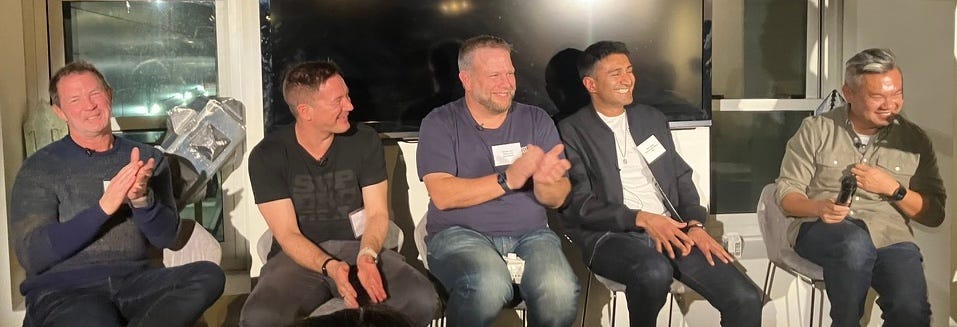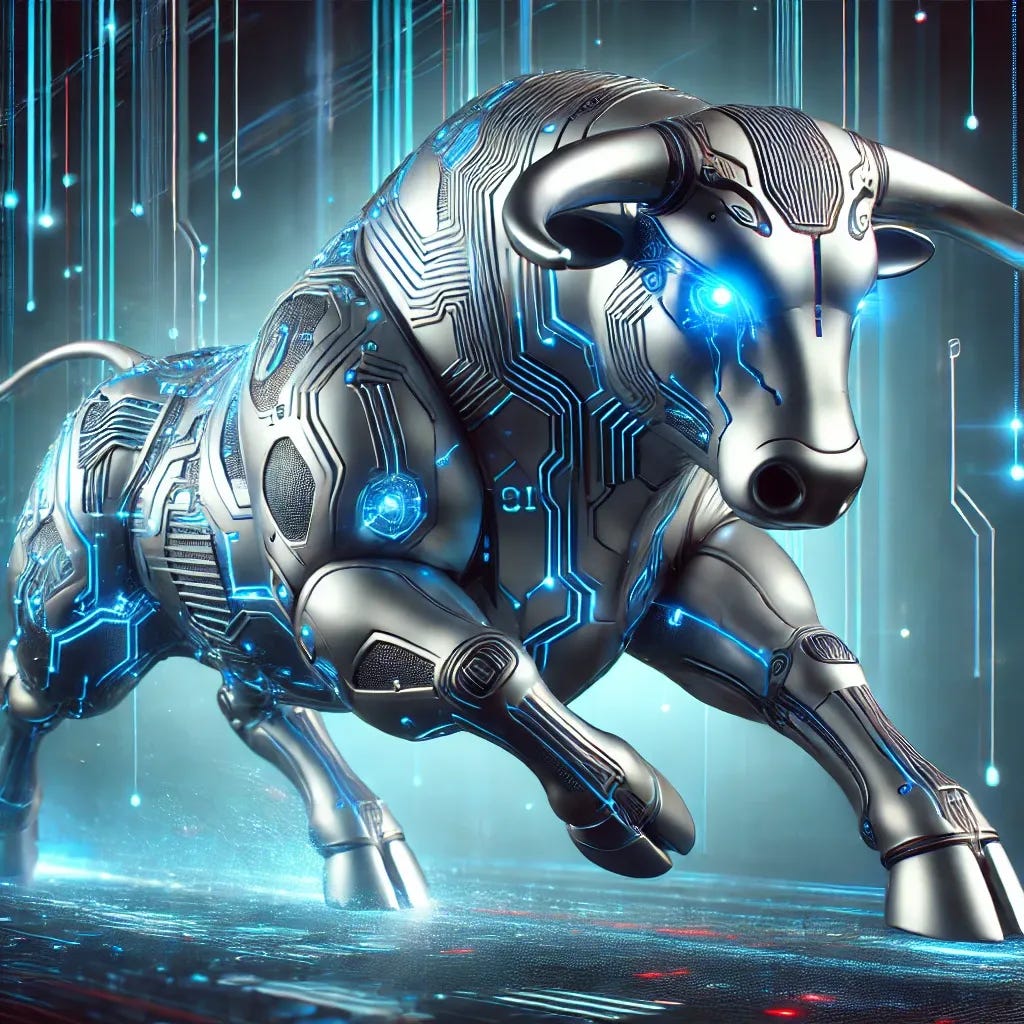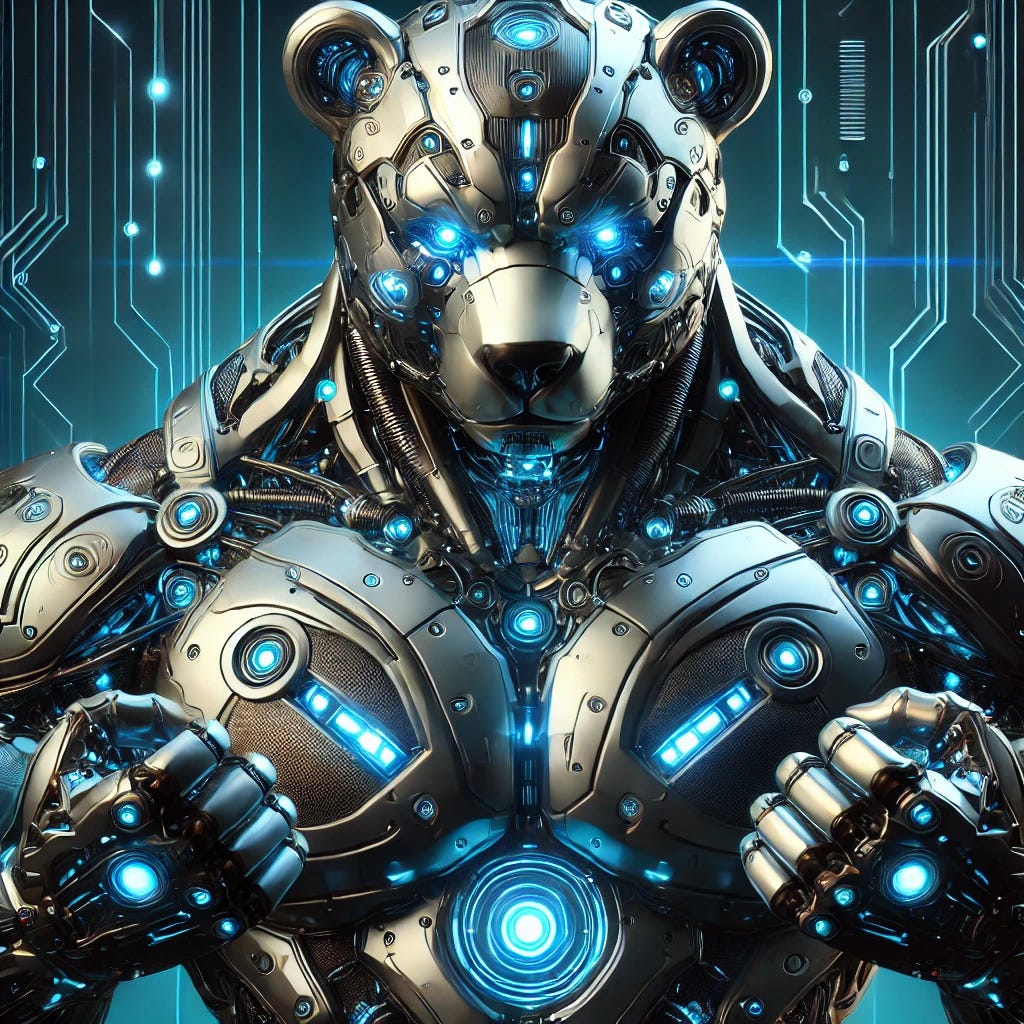On Tuesday night, Supercell hosted me at their AI Gaming event in San Francisco (thanks Ilkka Paanen and Otto Söderland for hosting, thanks Ichiro Lambe and Emmanuel de Maistre for getting me the invite). The evening provided me a front row seat as five of the most successful, best-connected operators in the industry opined on the state of AI and the video game industry.

The Current Impact of AI
As if by design, panelists were arranged from bearish (Rob) to bullish (Andrew) regarding how quickly and significantly AI will shape the industry. The resulting discussions and disagreements about AI surfaced the key issues of our day. I wish the whole industry could have been there and hopefully Otto and Ilkka will post the video, but until then… here’s all the insights that left an impression on me.
The Bull Case for AI
Andrew argued that the disruption potential of AI is already upon us. Namely: the cost and time barriers-to-entry for making interactive entertainment are dropping rapidly.
While AI can not be relied upon right now to excel at crafting high art like Baldur’s Gate 3, the sheer nature of the fact that there will be so many shots on goal, may yield an industry shift.
Andrew mentioned that we already forget that in the early 90’s only companies who could raise millions of dollars could host a web site on the world wide web (or they had to mooch off their university’s resources until they got funding). Now of course you can trivially put up your own site or use a turn key hosting service who will build a site for you. Similarly there was a time when Hollywood was the only mechanism for creating video and distributing it to the world. Now you have companies like YouTube and Twitch.
Although James Cameron’s masterpieces will likely never be in direct competition with Mr. Beast, YouTube democratizes the ability to create and distribute video, thus empowering a multitude of content creators who never could have existed before. These creators define genres and content styles and build audiences that never existed before.
Andrew stated the same thing is likely to be happening right now to the games industry. Perhaps innovation might look like smaller, bite-sized, perhaps even very topical content at first that will open a new market and shift behavior. Perhaps it will look like a game of the week that is based on current events (this thought experiment reminded me very much of South Park’s successful 6 Days To Air approach).
But most importantly, Andrew reminded everyone that it’s early innings. So it will be very hard to anticipate the exact shape of disruption. Jobs as we know them today will have to change. Titles have mostly been imposed by management consultants and MBA’s onto Fortune 500 companies in ways that ripple outward to everyone else. The very structure of how companies operate is going to change soon.
The original VC investment strategies often involved betting on Stanford PHD’s. Then they began to shift to backing UI/UX experts from RISD because now everyone could build the core web tech but you needed something beautiful and useable to welcome and keep users. Andrew predicts the near AI future for entertainment is one where anyone who can tell a story can generate a game… thus the very best storytellers will be most favored…
(Thesis overlap: EGG has invested in famous author Neal Stephenson and Karen Laur’s project Whenere)
The Bear Case for AI
Rob acknowledged the possibilities for AI are mind blowing but that the responsible strategy for a studio should be a measured, wait and see approach.
There are some limited instances where AI and modern tools can be helpful. For example, if you are delicately trying to balance your meta across permutations of character sets and item load outs… the grunt work that was once done by hand in spreadsheets can now be streamlined and automated. At best, there are some situations where AI can co-pilot on simple, straight forward tasks.
Rob rebutted Andrew by pointing out that lots of people know how to write but not everyone is a good writer. It’s really hard to design a great game… and Rob would know because he designed World of Warcraft, one of the greatest games of all time.
The problem isn’t that we need AI to help more people churn out more games of questionable design quality. The world was already overrun by content before AI, much of which will never rise above the noise. What we need is great games that can actually find and establish their audience.
(Thesis overlap: EGG has invested in Ichiro Lambe’s company Totally Human Media which is building We Love Every Game to leverage AI to solve game discovery.)
The Moderate Case for AI
Don’t force it…
Ilkka opened by explaining that the adoption of AI has to be driven by the creatives themselves. No one should be afraid of losing their job. People have to be inspired to use a new technology like AI or it’s not going to work.
Wes who is spearheading AI at Riot explained that when done right it should feel like 1,000 interns helping out you and your team.
Only use AI where it’s helpful…
Mihir explained that across EA, the teams that were able to think about their jobs as “bundles of tasks” were most suited to productive use of AI. If you can decouple your work flow task by task, you can use AI precisely where’s it’s helpful and avoid it elsewhere. A very specific success case for EA was in the realm of putting player-likenesses into sports games. What used take tens of thousands of hours of athletes wearing mocap suits and using expensive equipment can now be largely sourced from simple video footage (check out this SIGGRAPH talk).
AI Can Grow the Pie
Mihir thinks everyone should have a growth mindset right now because AI is predominantly going to be an additive force to the industry. Many roles can level up and be more productive.
Andrew described the forming of new genres. For the first time there are games like Suck Up!… where you play a vampire trying to convince various AI characters to let you in. This free-form, say-anything-you-want, open-ended player experience has never been possible before in an interactive experience.
(Thesis overlap: EGG has invested in Tommaso Chechi and Coleman Andersen’s company Tomato Cake which is building an AI-powered genre that has never existed before.)
The only conspicuous omission I noticed from the discussion was about pricing. Video games have always been about adopting cutting edge technology to deliver interactive entertainment experiences no one has seen before. If you use technology well, and create a compelling experience why can’t you create upward pressure on pricing?
In Matthew Ball’s industry report, he says that GTA 6 may lift industry prices for everyone if the game goes to market above the standard $60 price point. It’s been “common knowledge” for some time that AAA games are not supposed to price above $60 nor “indie” teams to price above $25. But what if small teams are suddenly able to create experiences that look and feel more like AAA productions? Shouldn’t that unlock higher price points for their games?
An Exciting Time To Be Alive
The gaming industry has experienced rapid change at a faster clip than any other time I can remember (some of those changes have felt really bad). Alongside the advent of LLM’s and image generation, we’ve seen top line industry growth plateau, encountered a funding slump and witnessed constant layoffs and studio closures. It’s been really tough for a lot of people.
But AI is here whether we like it or not and in addition to causing paradigm shifts, it will yield new opportunities.
Ilkka recalled a time when he was going to GDC and showing people Clash of Clans for the first time. Most people laughed and said “Why would anyone want to play that?”. He watched as industry giants were caught napping while he dropped Supercell’s free-to-play, mobile experiences on the unsuspecting world. And now he feels the same excitement that he hasn’t felt since those early days over a decade ago… except this time he’s a large incumbent.
The Rise of the Small Studio?
Despite vigorous debate, the panelists largely agreed that power is shifting into the hands of creatives. It is more possible than ever for small groups of talented people to dramatically shape the industry. Like Ilkka, I haven’t seen or felt this kind of opportunity since the indie golden age circa 2008-2012.
Supercell, has done a spectacular job of scaling a large business that operates like a collective of small indie studios. This agility will serve them well at the dawning of the AI era.
But somehow in times of great technological shift, David always seems to find a market that Goliath hadn’t considered…









I should add in the past 24 hours people are reporting o3-mini and o3-mini-high going from text prompt to full mini game in one shot:
https://x.com/elbowgg/status/1885911961122328598
Hi John, thank you for sharing this! I'm a super fan of game like Suck Up. May I also invite you to have a look at our game <1001 Nights>? It's a LLM-driven game: you need to outsmart an AI King by telling stories in Arabian Nights. We will soon give a talk on the GDC AI summit and would love to hear your thoughts! https://store.steampowered.com/app/2782660/1001_Nights_Demo/